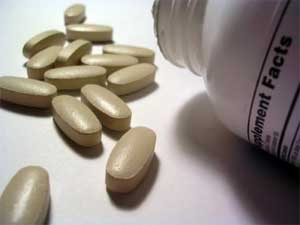
More evidence that low-calorie sweeteners are bad for your health
Studies show that artificial sweeteners can raise the risk of hypertension, metabolic syndrome, type 2 diabetes and heart disease, including stroke.

Natural Health News — The drama may have passed you by and yet if you take glucosamine as a supplement it is directly relevant to you.
In the UK the Medicines and Healthcare Products Regulatory Agency (MHRA) classifies glucosamine and glucosamine related products as supplements. They are widely available over the counter and in a variety of doses and formulations.
But in 2013 a large pharmaceutical company, the European arm of Chinese company BlueBio (Yantai) Pharmaceuticals, mounted a challenge in the High Court to have glucosamine reclassified as a medicine.
In fact, while there have been several previous challenges to the MHRA’s position that glucosamine is not a medicine, this challenge was seen by many as the most determined yet.
Using the mechanism of a Judicial Review at the High Court, BlueBio sought a declaration from the Court that all glucosamine-containing products should be reclassified as medicinal – and only for the relief of osteo-arthiritis of the knee, or failing that a declaration that all such products marketed with a daily recommended dose of 1500 mg are medicinal products.
Joining forces
The move saw the MHRA and the UK’s Health Food Manufacturers’ Association (HFMA) – groups which are not always in agreement – joining forces to quash the challenge.
HFMA executive director Graham Keen said at the time that there would be “serious and far-reaching implications” if the challenge were successful and the HFMA filed a substantial submission to the Court in support of the MHRA’s position.
Keen further warned “Not only would the highly valuable food glucosamine market be lost to the health food trade, there would also immediately be implications for the future food supplement status of other substances, in particular those that have licensed equivalents – for example, cod liver oil, folic acid, and vitamins D and B12. A worrying precedent might also be established whereby the MHRA’s ability to review products on a case-by-case basis is seriously threatened.”
“This is a watershed moment for our industry. We can’t afford it to be one of those occasions when we look back in five years’ time and say ‘how on earth did we allow that to happen’.”
A victory for common sense
Late last week the judicial review concluded that glucosamine could remain on the market. The judgement noted amongst other things that the predominant use of glucosamine and related products is as a food supplement. It also noted, in essence, that simply because a substance has a medicinal action, that does not automatically make it a medicine.
Speaking about the case Keen noted:
“We are very pleased with the outcome of this highly significant case, which had a very real capacity to have a profound impact on the future for our members, this industry and, perhaps most significantly, consumer choice.
“We are relieved that the judge has so clearly rejected all of the claims made by the Claimant in this case, and in such a speedy fashion. We have argued vigorously throughout the case that the current food supplement status for glucosamine should be maintained, and the Honourable Mr Justice Supperstone clearly agrees with this, citing much of our argument in his judgement.
“We are happy to have played such a key supportive role in helping the MHRA to defend this action, and my thanks in particular go to our excellent lawyer, Brian Kelly of Covington & Burling, who represented us at the hearing, and those companies, both members and non-members of the HFMA, whose financial support enabled us to intervene into this case.”
It is as yet unknown whether Blue Bio will mount a further challenge to the ruling.

Please subscribe me to your newsletter mailing list. I have read the
privacy statement